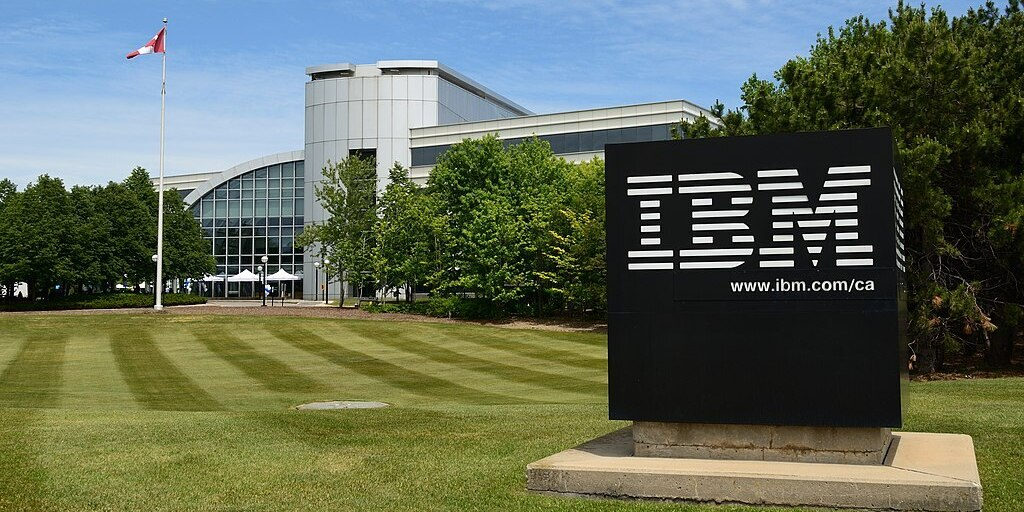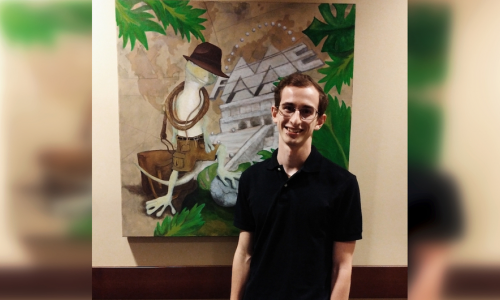
In 2004, my parents bought me a computer with Windows 95 installed on it and the very first day it crashed. At that time I was in 9th grade and computers were not so famous in villages of my home town Punjab (India). But now almost every home has computers and fast internet, time flies so fast. While I was studying in high school my interest in computers grew by the day, I started learning how to install Windows & assemble parts together to run the computer. So by the time I graduated from high school I already knew what I was going to do next. My parents give me the best luxury of life: To study abroad.
I stared the journey of working towards my bachelor's degree in Software Systems at Simon Fraser University in 2010. The first couple of semesters went well, I started learning new programming languages and was able to implement them in actual lab workshops, then I took CMPT 275 in which we learned about software development cycles and strategies, and developed an iPhone app named SpeakRead for visually impaired people who can see objects but only as blurry shapes. Our product will help by having big buttons, and text that the user does not have to read. The application makes browsing the internet and reading books very easy by improving the readability of small text. It was a great learning experience, and this course allowed me to begin seeking for Co-op.
When looking for a Co-op job in Summer 2010, I started applying for jobs mostly in the System Administration field because I was more comfortable in the IT field than in the development side at that time. Fortunately my first interview landed me an eight month Co-op job as Client Technician Support at Genome Science Centre. Canada's Michael Smith Genome Sciences Centre is a leading international centre for genomics and bioinformatics research. The company’s mandate is to advance knowledge about cancer and other diseases, to improve human health through disease prevention, diagnosis and therapeutic approaches, and to realize the social and economic benefits of genomics research. The Genome Science Centre is one of fifteen research programs that operate as part of the BC Cancer Research Centre. The BC Cancer Agency, an agency of the Provincial Health Services Authority, provides a province-wide cancer control program for the residents of British Columbia. Additional support is provided by funds raised by the BC Cancer Foundation for cancer research.
My role at Genome Science centre was as a Client Support Technician, I’m part of the Systems team which controls the whole computer and research network inbetween two sites i.e. the Genome Science Centre location & BC Cancer Research Centre location. The Genome Science Centre has the latest equipment for DNA sequencing, which are in operation with the help of extremely high powered computers and high speed networks. I was a multitasked technician performing multiple roles everyday by fixing clients issues related to their computer software and also tracking other hardware, software or network issues with research equipment addressed in the ticketing system. Apart from these tasks, I was performing other duties, as in line with my job title:
-
Unpacking, assembling, imaging, testing, upgrading, and repairing new and existing client systems
-
Support contact for end users of client systems and assisting in general support for complex systems
-
Performing installations, upgrades, and diagnosis on computer software
-
Providing documentation of work in ticket tracking system
-
Developing scripts for network automation and database management for Software Inventory
-
Managing User Group Policies and security issues
-
Account creation for new hires
-
Tracking issues with printers & scanners
Moreover I was assigned multiple projects. I had to do work accordingly on those projects by performing everyday tasks and following up with projects deadlines. My projects include setting up a network switch, improving software distribution methods, and the virtualization of research lab equipment. These projects exposed me to new technologies and gave me an opportunity to successfully complete them. I had the luxury to work in an environment where we have high cluster computing, around 12 to 16 petabytes of data maybe more than that, because the DNA sequencers generate terabytes of data in single run. I was able to assemble server parts and to install new storage units. Regardless of the technology, I've learned a lot in my life, I've decided to work in Health sector after graduation to put my knowledge towards improving human health, not to work in an industry where profit or money is the only goal. After eight months at my Co-op, the day came when I got the good news of an extension on my job for another four months to finish my last project of virtualizating research lab equipment on a part-time basis.
I worked at the Genome Science Centre for one year, and within in that year I worked with almost every single employee of GSC. I've learned a lot about cluster computing, big data, network administration, data backup strategies, recovery of crashed systems and gained a little bit knowledge of how Genomic science helps find the cure for diseases like cancer. I would like to thank the System team at Genome Science Centre, especially my team Lead Greg Stazyk (System Coordinator) who gave me the chance to learn and grow in my career. I missed those welcome and good-bye lunches and Monday meetings. I’ll be planning to do my Masters in Bioinformatics because my experience was so good while working with the doctors and computer research scientists at GSC.
After successfully completing my first two Co-op terms I went to school for another year and in Spring 2013 I started looking for my third Co-op job, this time I started applying for jobs on my own, targeting multinational companies, I had an interview with Microsoft but unfortunately I wasn't selected to continue past the first round due to lack of coding interview practices. I did apply to Facebook, Twitter, IBM, Google, and Amazon. The first interview I got was with IBM and one week later with Twitter. My interview at IBM went well and I was hoping to get the job for the chance to work in the Health Sector. While I was preparing for my interview with Twitter I received an email from the Co-op office that I had an offer from IBM and without wasting any time to consider whether to accept or not I signed the agreement with IBM. Currently I'm employed by IBM for eight months as a Software Developer at the Global Business Services unit of IBM Canada in Burnaby.
International Business Machines Corporation (IBM) is an American multinational technology and consulting corporation. IBM is one of the largest technology organizations in the world. It assists clients in running their businesses through the use of technology in a better and smarter way. I am employed at The Pacific Development Centre, IBM's centre for IBM e-business innovation in Vancouver, is an inbound solution development lab working with IBM Global Services to bring custom software solutions to the world. In fact, only 4% of the solutions produced at the Pacific Development Centre (PDC) are for companies based in the province of British Columbia.The centre's cross-functional 280 plus team of business analysts, consultants, engineers, strategists, application designers and developers, web designers, architects, QA specialists and project managers deliver solutions for the industrial/mid market/distribution, finance, communications, travel/transportation, education and public sectors.
In my opinion, IBM is a good company to start ones engineering career; it provides an opportunity to interact with and learn from the world’s best software engineering minds.
Currently I'm working in Panorama Sustainment team. Our team developed the Pan-Canadian Public Health Surveillance System (SDSM or Panorama), which links public health professionals, medical health officers, physicians, hospitals, and other authorized health stakeholders together into an electronic data network. The solution provides authorized health professionals with confidential access to public health functions and provides decision support tools designed to help improve the delivery of public health services to Canadians. The core set of functions provided are: Communicable Disease Management, Outbreak Management, Immunization Management, Family Health and many more.
Having a technical and development background has really helped me understand and undertake projects at IBM. I think having technical experience allows me to have the capacity to talk and work with clients, while my business skills help identify new opportunities in the industry. I've learned to never stop learning! Every single IBMer I've met has had a constant thirst for knowledge. Even top executives who have been in the field for over 30 years are always open to new ideas and cutting-edge developments. I've been told that the moment you stop learning at IBM is the moment you stop leading, and I hope to follow the idea IBM has set forward.
IBM gave me my dream job, I have the option to work from either the office or from home, most of the time I'm working from my home office, because my team is scattered all around the globe, with people working from Victoria, India, Egypt, Toronto, and Australia. Most of our meetings are phone conferences, but I always try to take part in summer BBQs or any other events happening in the Burnaby office so that I can meet more employees out there, and expand my network of project executives and managers. Working from home has given me a new experience in life, as working in an isolating environment requires a high degree of individual work. So far I'm doing well at IBM as I got feedback from my supervisor on my first term:
Parminder is dedicated and enthusiastic. He asks questions wisely, and is a skilled listener. He works superbly with minimal guidance, and has managed well within a globally distributed team.
So In nutshell, what I thought from the very first day of joining SFU is that doing a degree without completing a Co-op term or internship is worthless, you have to struggle a lot after your graduation for a job. I'm going to finish with my 4th co-op term, and I've gained vast experience with different kinds of technologies and learned to maintain a work-life balance well. I'm already receiving job offers from multinational companies and I feel secure about my future and this is all happening due to my Co-op experience.
Last but not least, working in Public Health sector encouraged me to work with non-profit organizations.While studying or working, I'm helping non-profit organizations in my spare time, using my technical skills to let them expand more in their communities through websites or social marketing. Both of my internships have given me endless opportunities to get involved in all aspects of the improvements that I need to achieve my career goals.
Beyond the Blog
-
Learn more about the Computing Science Co-op program at SFU.














